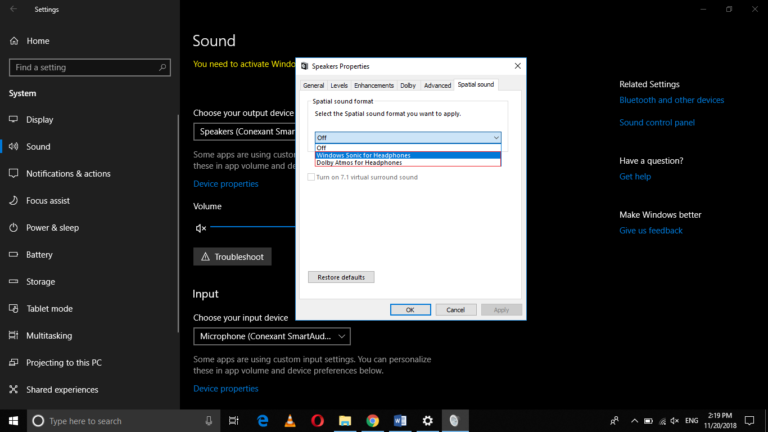
#AUDIO OVERLOAD WINDOWS 10 WINDOWS 10#
If you just installed a fresh copy of Windows 10 or recently upgraded, its possible that the. Our team and other community members will respond to you with an answer as soon as possible.įinally, for more Windows 10 Itechguides, visit our Windows 10 How-To page. I also have incredibly high cpu usage and audio drop outs. You could also ask a question, leave a comment or provide feedback at Itechguides Community Forum. It allows Studio One to share audio with windows and other programs. Uncheck exclusive mode if it's checked or check it if it isn't (Sometimes helps either way). If you found it helpful, kindly spare 2 minutes to share your experience with our community at Itechguides Community Forum. It should have the audio device as 'Windows Audio' since you're using the integrated sound card. I hope you found this Itechguide helpful. As you move the slider, the number will increase – indicating that the volume is increasing.Īs you can see, it is very easy to increase volume on Windows 10! Finally, to increase volume on Windows 10 via Control Panel, move the Speakers / Headphones slider towards the right.Then, on the Speakers / Headphones Properties screen, click the Levels tab. If you are running Windows 7, 8, or 10, please refer to the following two kb.On the Playback tab of Sound settings screen, double-click Speakers / Headphones.

Then, on the Small icons or Large icons Control Panel view, click Sound.On Control Panel, if View by is set to Category, click the drop-down and select Small icons or Large icons.

Another route is via the Task bar sound icon > Right. It has been 20 years since that game, forget what options are there, but reduce the level of sound effects. Probably start with none, tick the box for Disable all sound effects.

#AUDIO OVERLOAD WINDOWS 10 HOW TO#
How to Increase Volume on Windows 10 from System Tray or Windows Settings How to Increase Volume on Windows 10 from Control Panel.How to Adjust Volume via Windows Setting.How to Increase Volume on Windows 10 from System Tray or Windows Settings.


 0 kommentar(er)
0 kommentar(er)
